Lanceleaf Stonecrop, Lance-leaved Stonecrop, Spearleaf Stonecrop
Sedum lanceolatum
Synonyms: Amerosedum nesioticum, Sedum lanceolatum ssp. lanceolatum, Sedum lanceolatum ssp. nesioticum, Sedum lanceolatum var. lanceolatum, Sedum lanceolatum var. nesioticum, Sedum lanceolatum ssp. nesioticum, Sedum lanceolatum var. rupicolum, Sedum nesioticum, Sedum rupicolum, Sedum stenopetalum var. subalpinum
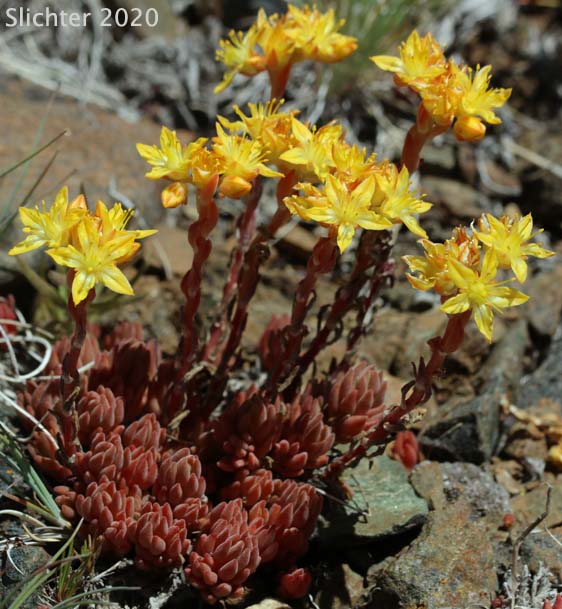 -
- 
Lance-leaved stonecrop as seen atop Observation Peak, Siskiyou Crest, Rogue River-Siskiyou National Forest.........July 15, 2020.
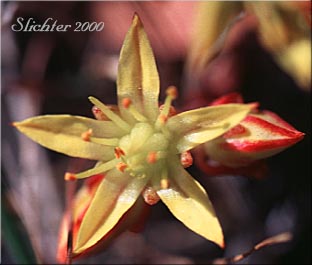 The
photo at right shows lance-leaved stonecrop from 9400' on the Steens Mt......August
3, 1995.
The
photo at right shows lance-leaved stonecrop from 9400' on the Steens Mt......August
3, 1995.
Characteristics:
Lance-leaved stonecrop is a succulent, perennial herb, with
smooth herbage and erect stems from 5-20 cm high, tufted from slender rhizomes.
Frequently, many sterile shoots or basal rosettes of leaves are present. The
leaves alternate on the stems and are found in dense clusters on the basal rosettes.
Individual leaves are fleshy, about .5-20 mm long, linear or linear-lanceolate
in shape, and ovate or round in cross-section. The tips of the leaves are blunt,
unlike its close relative, Sedum stenopetalum,
which may be found growing close by. The leaves may be greenish, reddish, or
purplish in color, and may be covered with a white, waxy powder.
The inflorescence is a dense, flat-topped cyme. The flowers
are about 1 cm across with 5 narrowly lance-shaped petals. The spreading petals
are yellow, and may be tinged or striped with red. They range from 6-7m m in
length, and are longer than the stamens. The sepals are triangular-lanceolate,
and range from 2-3.5 mm long.
Stonecrop leaves are said to be edible, and I've seen reports
that they have been used as food, but some species may cause headaches, diarrhea,
or vomiting. It is probably best to leave them alone.
Stonecrops are easily propagated by leaf- or stem-cuttings.
Place a stem in well-drained soil during the moist season, and it should begin
to form roots quickly.
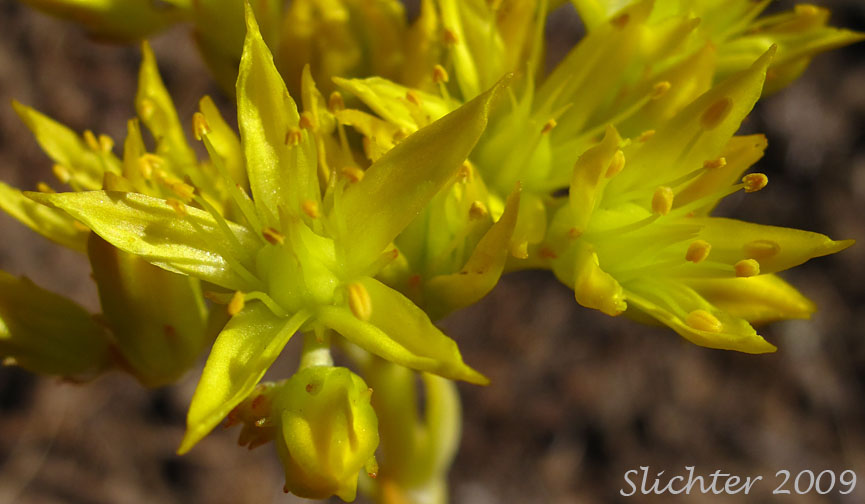 -
- 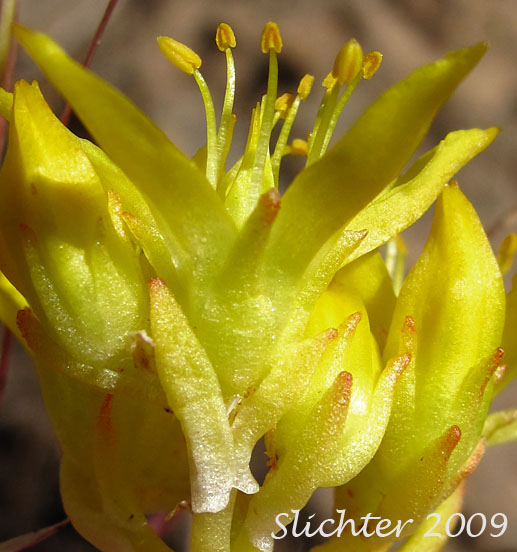
Close-ups of the flowers of lance-leaved stonecrop (possibly the old var. rupicolum?) from the junction of Reecer Creek Road and Road 3517, Wenatchee
N.F..........July 24, 2009.
Habitat:
Lance-leaved stonecrop may be found on dry, open, exposed places
which are gravelly or rocky. Such sites include ridges, slopes and rocky outcrops
from sea level to alpine areas.
Range:
Lance-leaved stonecrop may be found from southern Alaska and
the Yukon south to California and east to Alberta, South Dakota, Nebraska, Colorado,
and New Mexico.
 -
- 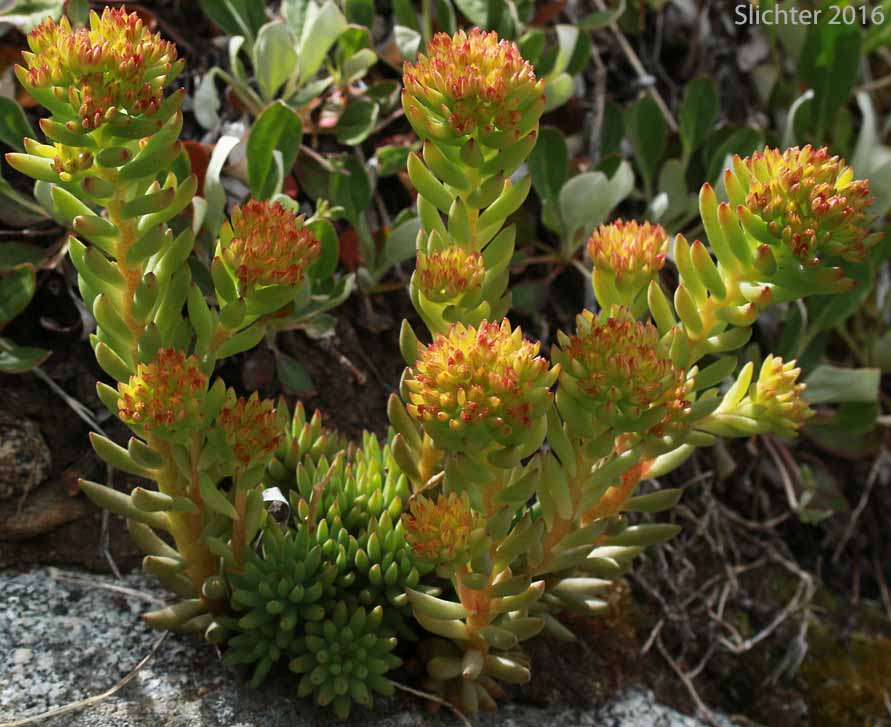
Stem leaves of lance-leaved stonecrop as seen (left) on a rocky point on the southeast shoulder of Wedge Mt., Wenatchee National Forest.........June 8, 2009. The photo at right shows lance-leaved stonecrop in bud along the upper mile of the Wapaloosie Mountain Trail #15 in the Kettle Range, Colville National Forest.........June 23, 2016.
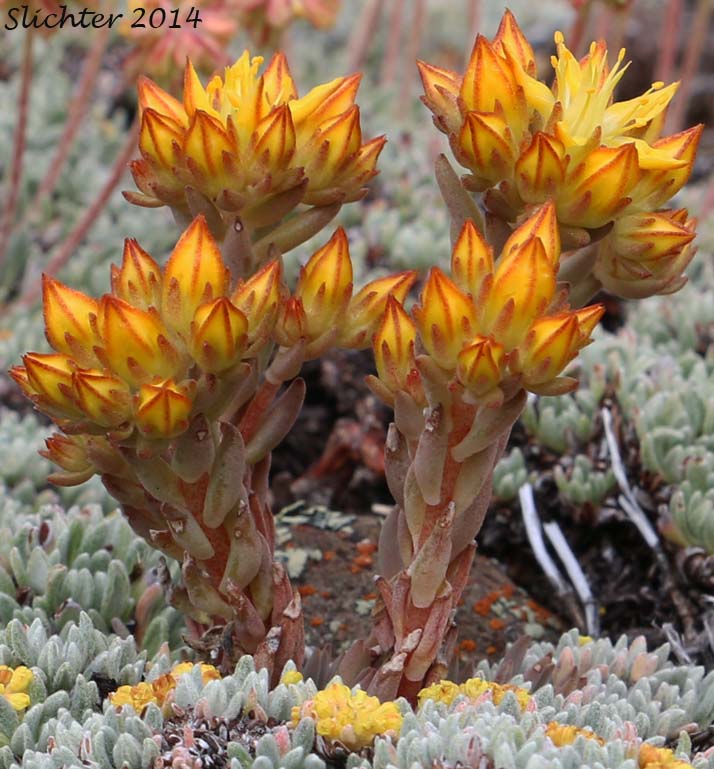 -
- 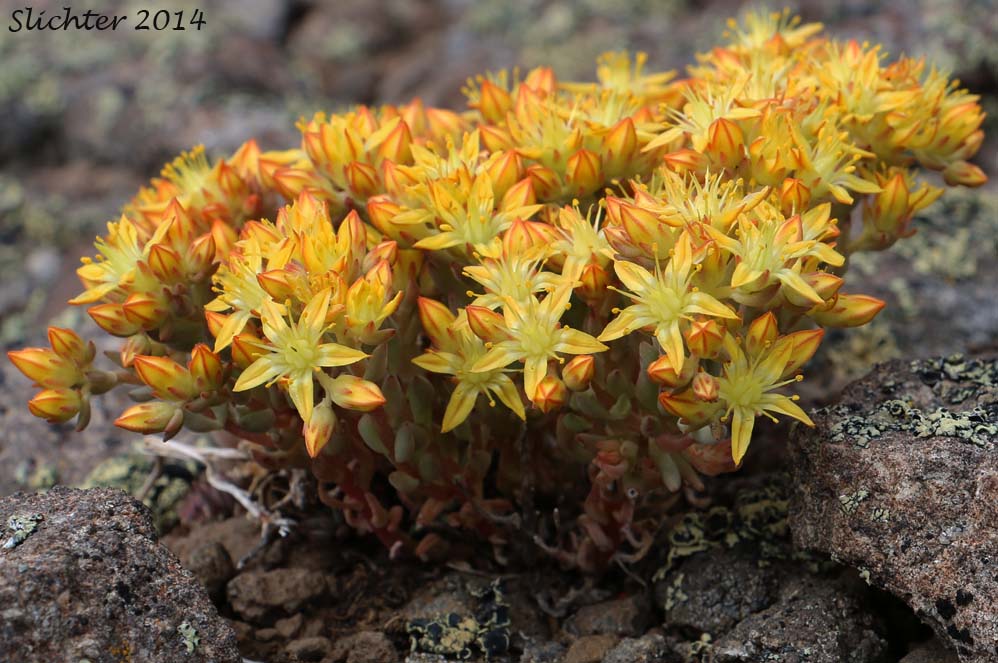
Lance-leaved stonecrop as seen on rocky soils near the head of Kiger Gorge, Steens Mountain.........July 11, 2014.
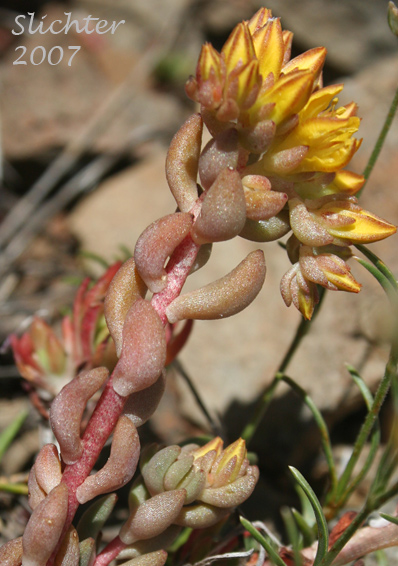
The photo above shows a close-up of the stem leaves and flower buds of lance-leaved stonecrop as seen at the Ray Ridge Viewpoint in the Umatilla National Forest of southeastern Washington.........June 25, 2007.
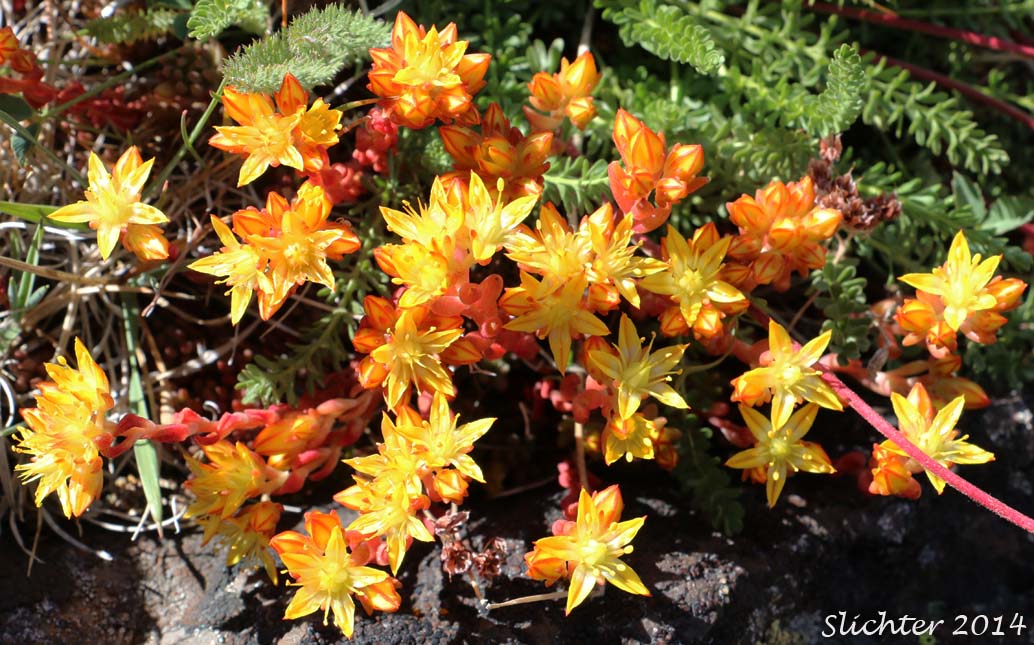 -
- 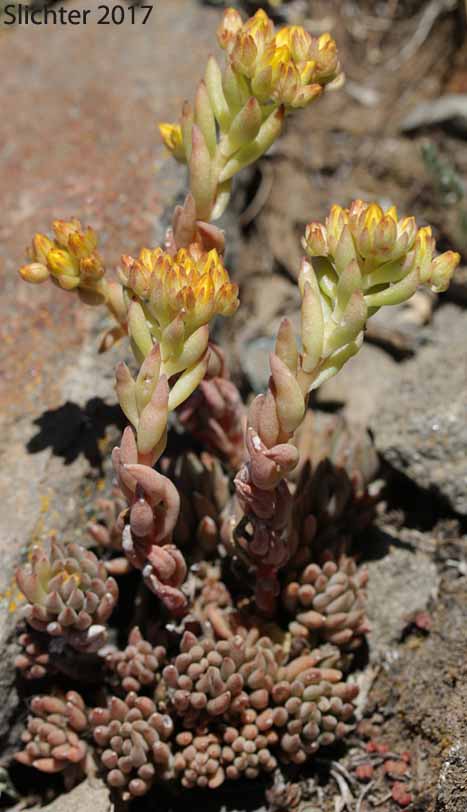
Lance-leaved stonecrop blooming (left) on rock outcrops along the South Loop Road about one and one-quarter miles downhill to the west from the East Rim Viewpoint, Steens Mountain..........July 9, 2014. The photo at right shows lance-leavd stonecrop with flower buds atop Lookout Mountain, Ochoco National Forest.........June 25, 2017.
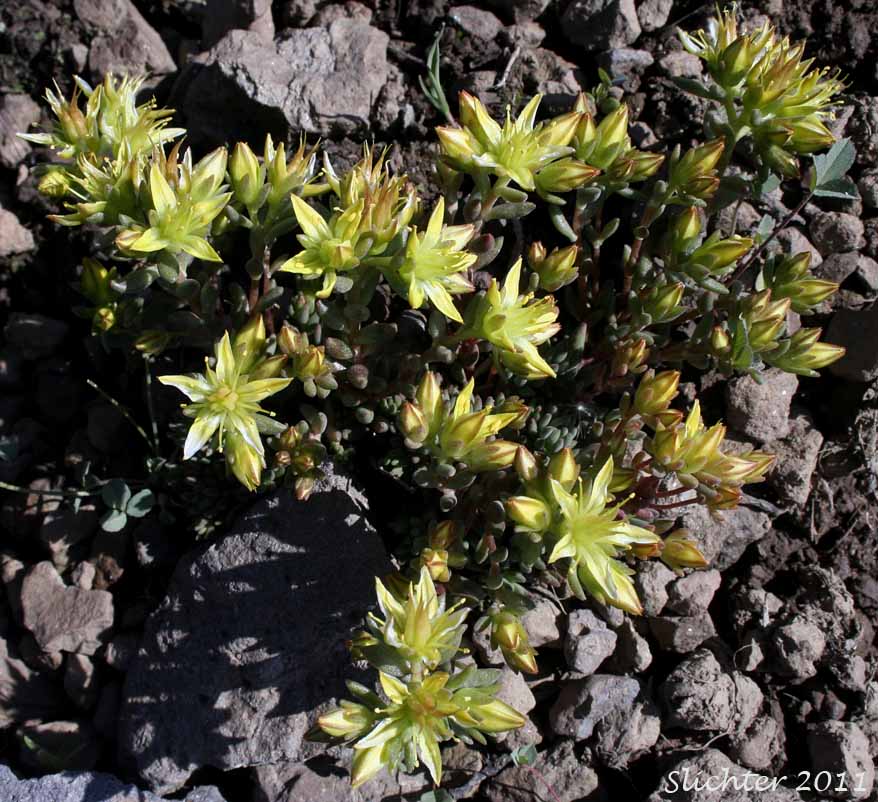 -
- 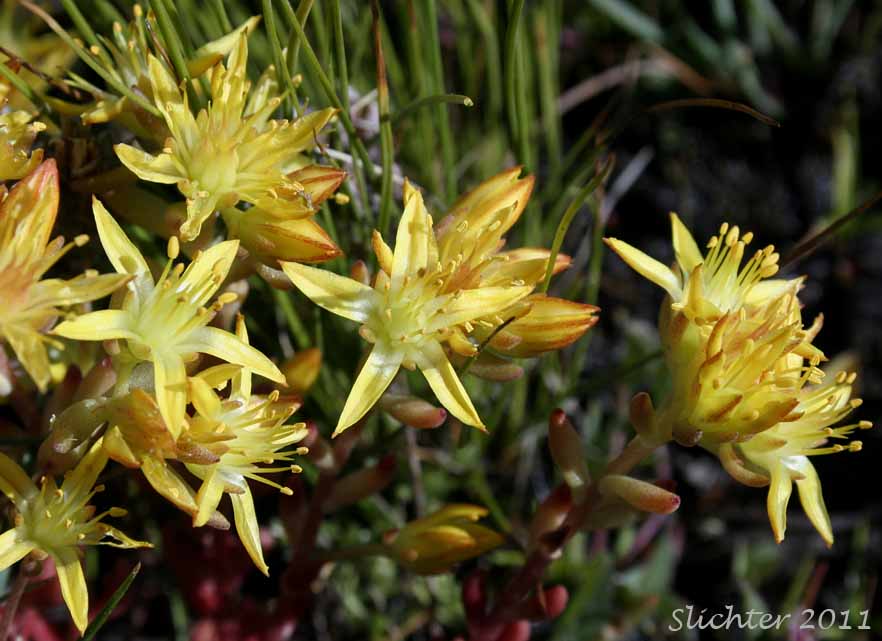
Lance-leaved stonecrop as seen along the South Loop Road about one mile downhill from the East Rim Viewpoint, Steens Mountain, Harney County, Oregon.........September 2, 2011.
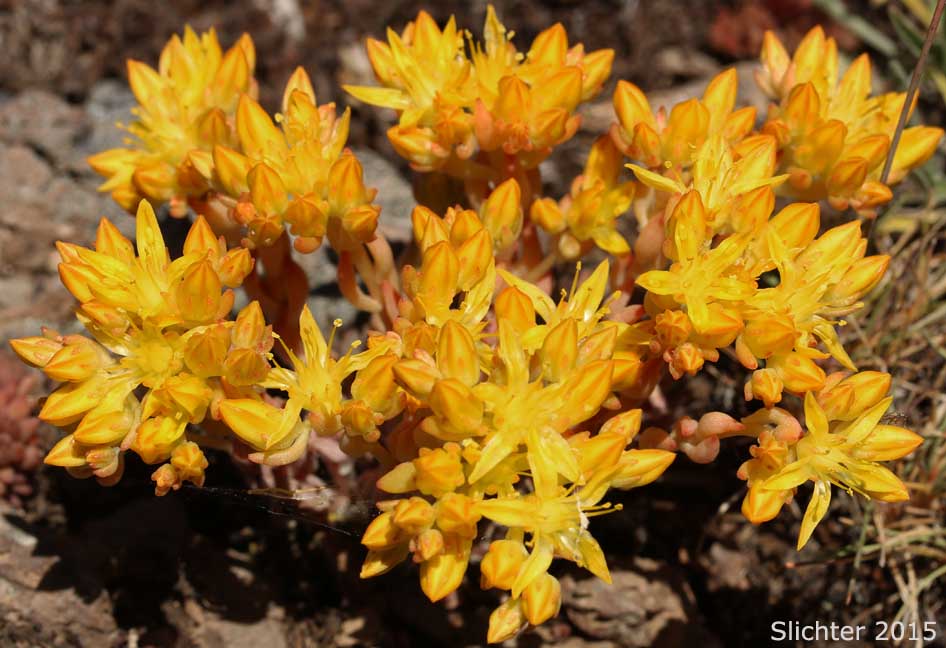
Lance-leaved stonecrop as seen on a basalt outcrop about one-half mile east of Spanish Peak, Ochoco National Forest.........June 14, 2015.
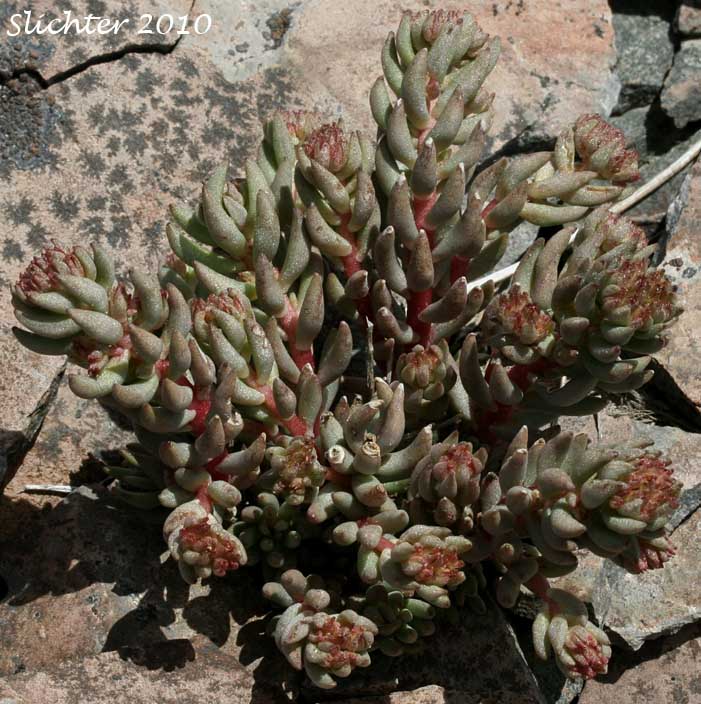 -
- 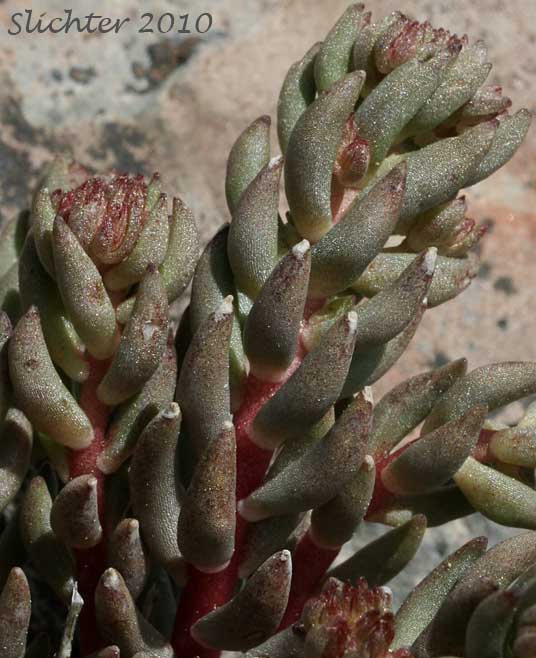
Lanceleaf stonecrop as seen along Trail 201 just west of the junction with Trail #368, Strawberry Mountain Wilderness........July 1, 2010.
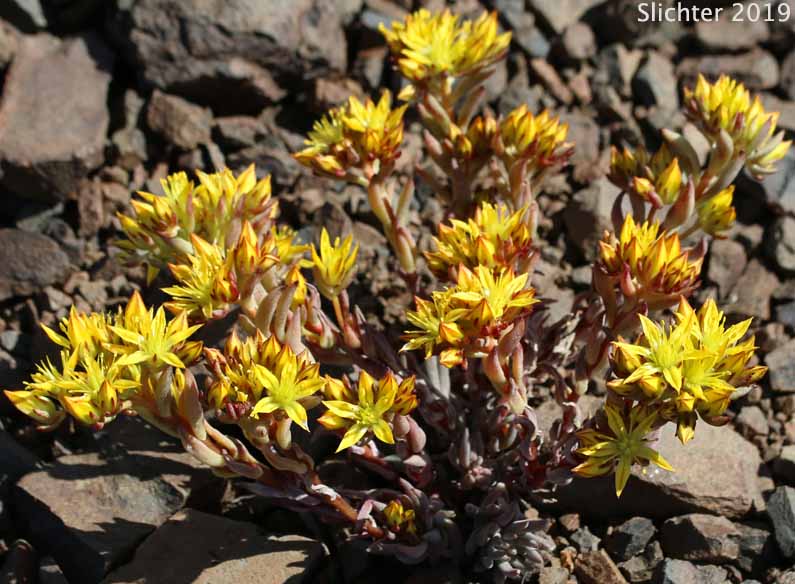 -
- 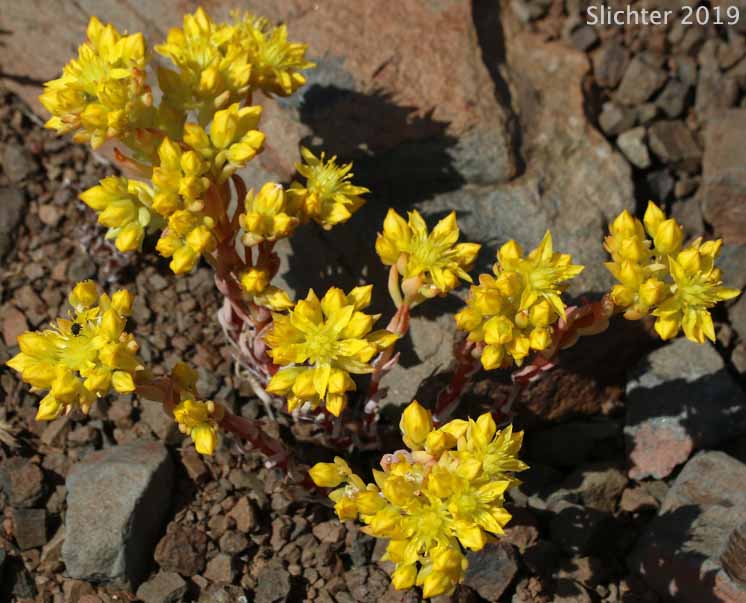
Lanceleaf stonecrop beginning to bloom at 7900' atop Sugarloaf Mountain, Wallowa-Whitman National Forest.....July 18, 2019.
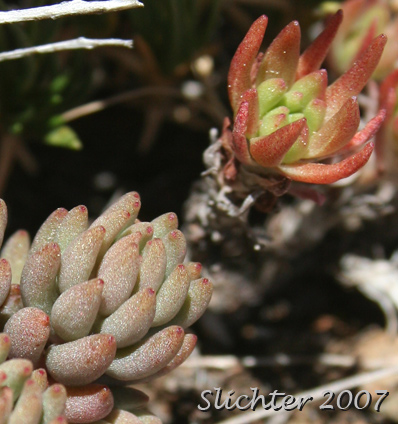
The photo above shows a close-up of the basal leaves of both lance-leaved stonecrop (lower left) and worm-leaf stonecrop (upper right) as seen at the Ray Ridge Viewpoint in the Umatilla National Forest of southeastern Washington.........June 25, 2007.
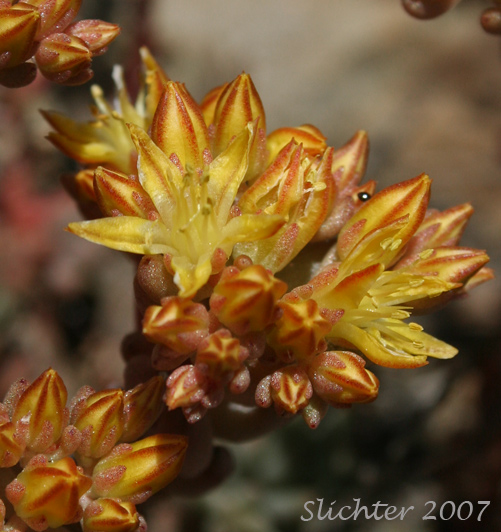
The photo above shows a close-up of the flowers of lance-leaved stonecrop as seen at the Ray Ridge Viewpoint in the Umatilla National Forest of southeastern Washington........June 25, 2007.
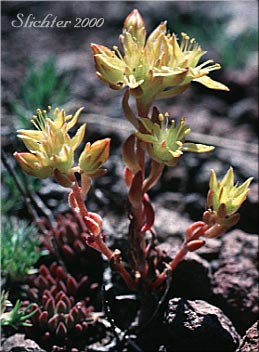
Lance-leaved stonecrop (var. lanceolatum) at Winter Ridge, Fremont N.F......May, 26,1996.
Paul Slichter
 The
photo at right shows lance-leaved stonecrop from 9400' on the Steens Mt......August
3, 1995.
The
photo at right shows lance-leaved stonecrop from 9400' on the Steens Mt......August
3, 1995.